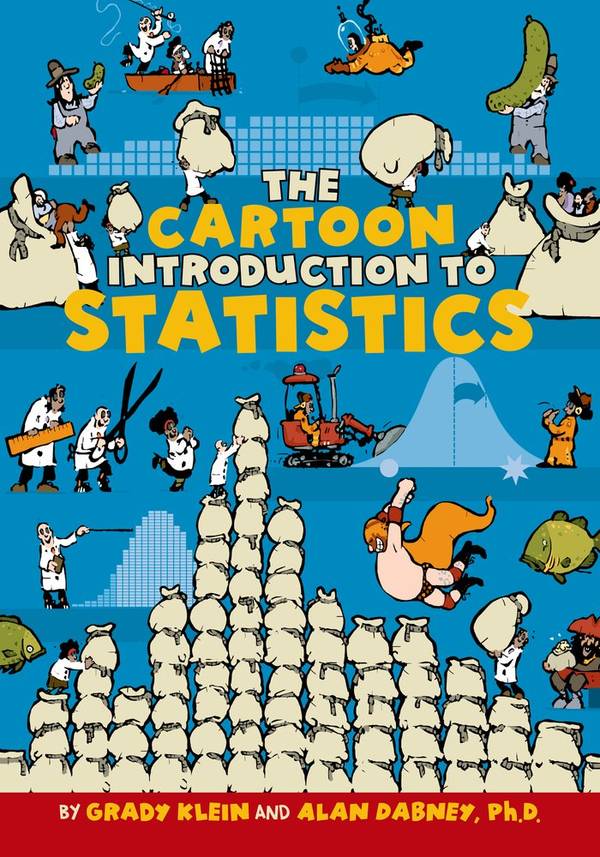Being a compendium of some of my most popular nonfiction reviews from the past year, from Capital in the 21st Century to The Divide

Emergency Sasquatch Ordinance: And Other Real Laws that Human Beings Actually Dreamed Up
A genuinely funny and extremely weird tour through the world's dumbest rules, starting with the Babylonians (who had a trial-by-ordeal through which you could prove you weren't guilty by jumping into the river and not drowning) up through the Hittites (who had a whole set of rules about whether it was OK to steal your neighbor's door); the ancient Greeks and Romans (who were allowed to go into their friends' houses to search for their stolen property, provided they did so in nothing but a loincloth, to ensure they didn't plant any goods while searching) and modern times, including the notorious "Pi=3.2" state law.

Letters of Note: An Eclectic Collection of Correspondence Deserving of a Wider Audience
Some of my favorite Letters of Note:
* A letter from Morrissey at 17 to NME about the Sex Pistols
* EB White on why he wrote Charlotte's Web: "A book is a sneeze"

No Place to Hide: Edward Snowden, the NSA, and the U.S. Surveillance State
More than a summary of the Snowden leaks: it's a compelling narrative that puts the most explosive revelations about official criminality into vital context.

Capital in the Twenty-First Century
For Piketty, this extreme wealth disparity is a central fact of history, and it is supposed to be the thing that modernity — and capitalism — conquered, through a "meritocratic" system that rewards people who do amazing things with amazing fortunes, and that recognizes that merely being the kid of someone who did something amazing is not, in itself, amazing, and should not entitle you to the exalted heights that your storied forebears attained.

The Divide: American Injustice in the Age of the Wealth Gap
We live in a society where HSBC can be found guilty of laundering billions for brutal Mexican drug-cartels who torture and murder with impunity, pay a fine equal to a few weeks' profit, and partially defer bonuses for a few of its executives. But on the same day, across America, poor and mostly brown people are locked into inhumane prisons for selling a joint or two of the weed those cartels control.

It's Complicated: The Social Lives of Networked Teens
Passionate, scholarly, and vividly described account of the reality of young peoples' use of networked technologies in America today. Painstakingly researched through interviews and close study for more than a decade, boyd's book is the most important analysis of networked culture I've yet to read.

Theory of Fun for Game Design
An absolutely indispensable book about the phenomenon of fun, full of mind-blowing and very applicable insights into games, from a legendary designer.

How to Cheat at Everything: A Con Man Reveals the Secrets of the Esoteric Trade of Cheating, Scams, and Hustles
A veritable encyclopedia of cons, scams, tricks and rip-offs. Lovell is a magician by trade, and much of the book is given over to detailed sleight-of-hand HOWTOs for palming, greasing, fixing and cheating cards, dice, coins, and so on.

Of Dice and Men: The Story of Dungeons & Dragons and The People Who
Energetic and personal history of Dungeons and Dragons. Ewalt — an editor and writer at Forbes magazine — played D&D as a geeky adolescent, gave it up through his early adulthood, then fell in love with it again. Dice and Men is the story of his journey in D&D and the history of the game itself.

The Internet Police: How Crime Went Online, and the Cops Followed
Anderson's book is profoundly empathic. Even when he's showing you where the cops got it badly wrong, or where the entertainment industry's policy objectives were self-destructive and terrible for the net, he goes to some lengths to try to understand why the people who enacted these rules failed. He doesn't assume that mistakes spring from mere stupidity, and looks for the "reasonable" case for each mistake. He doesn't let the rich and powerful off the hook for their mistakes, but knowing how the mistakes got made is key to understanding how to prevent them in future.

Minimalist Parenting: Enjoy Modern Family Life More by Doing Less
Simple, short, entirely sensible guide to escaping social expectations and personal childrearing anxiety. It's a book about figuring out the parenting choices that'll make you and your family the happiest, and to clearing your life of all the stuff that's been foisted on you as a must-do for modern parenting.

The Cartoon Introduction to Statistics
Tackles both the task of providing a grounding in statistical concepts (mean/median, standard deviation, null hypothesis, random sampling, confidence intervals, etc) and explaining in clear and exciting ways why you'd care about any of this stuff.





